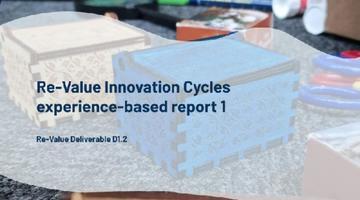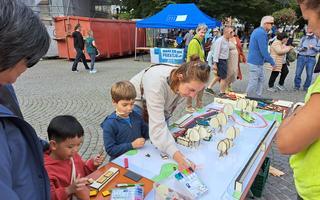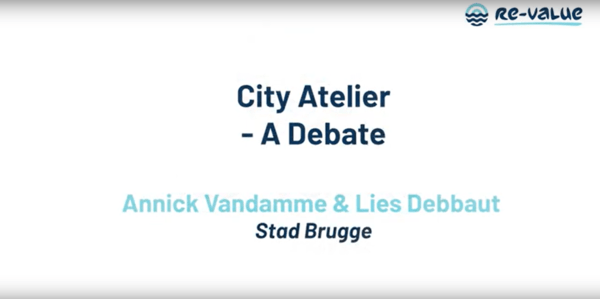Bruges
Evidenced by its historic city centre, which has been designated a UNESCO world heritage site, Bruges is one of Europe’s best-preserved cities, known for its renowned city views and small, hidden, corners.
About
To keep its unique architectural history alive, Burges is preparing for a climate neutral and climate robust future. A signatory of the Covenant of Mayors since 2015, the City of Bruges aims to reduce local CO₂ emissions and become more climate-resilient. By 2050, Bruges wants to be climate neutral and climate resilient. Therefore a climate plan 2030 was designed in 2022. The climate plan consists of 7 guidelines (‘7 bridges’) and more than 200 actions to reach the goal of 49% CO2 reduction as an intermediate step to become climate neutral in 2050.
In Re-Value, Bruges will investigate how the ambitious plans the city has for its ‘Kaaidistrict’ (Quay District) can transform the currently monofunctional and fully paved area to a sustainable, climate neutral and climate resilient and multifunctional city-district to serve as inspiration for other parts of the city and outside of it. Through extensive collaborations, Bruges aims to develop innovative strategies encompassing quality of life, urban mobility, climate policies, new development approaches (f.i. new governance models and masterplans), and enhanced participation among public, private stakeholders and less typical stakeholders such as creative organisations and citizens.
Specifically, the interventions will focus on taking actions identified in a concept study for the Kaaidistrict from 2022. This vision aims to transform the area from what’s today dominated by the legacy of ‘soft’ industry, into a neighbourhood leaving room for retail sale, food vendors and local artisans, combined with living and recreation.
In order to achieve the level of ambition for the Kaaidistrict, Bruges will explore new strategies in the field of spatial policy and planning, climate policy, vision development and collaboration between the public and private sector. The development of this new urban district can only be realised by and with all stakeholders: owners, developers, users, residents, the local harbour and all government authorities involved. This project in the Kaaidistrict will hopefully be a showcase of how the climate ambitions and ambitions about spatial quality can be anchored in the spatial instruments and toolbox.
Learn more on the local Kaaidistrict website.
Key Numbers
5
Local partners supporting Re-Value
118,500
Population
Timeline
Journey to Change - at European Week of Regions and Cities
Albert Borschette Congress Center Rue Froissart 36 1040 - Bruxelles BelgiumAre you curious about how cities can explore novel approaches to sustainability, inclusivity, and beauty by integrating diverse efforts across disciplines and stakeholders....
Bruges holds first Kaaiklappers event and car free Sunday
On 12th and 15 of September, 2024, the City of Bruges engaged with local stakeholders including children in two local events.
Learn more and share from LinkedIn.

Re-Value Innovation Cycles experience-based report 1
Discover how the Re-Value cities are using three types of Innovation Cycles to help them develop narratives for this transformation, find and apply the relevant...
Bruges: City Atelier, A Debate
Learn about Bruges's great example of working inclusively. In this round, cities have the chance to be inspired and can learn from each other.

The sole responsibility for the content of this website lies with the project and in no way reflects the views of the European Union.


